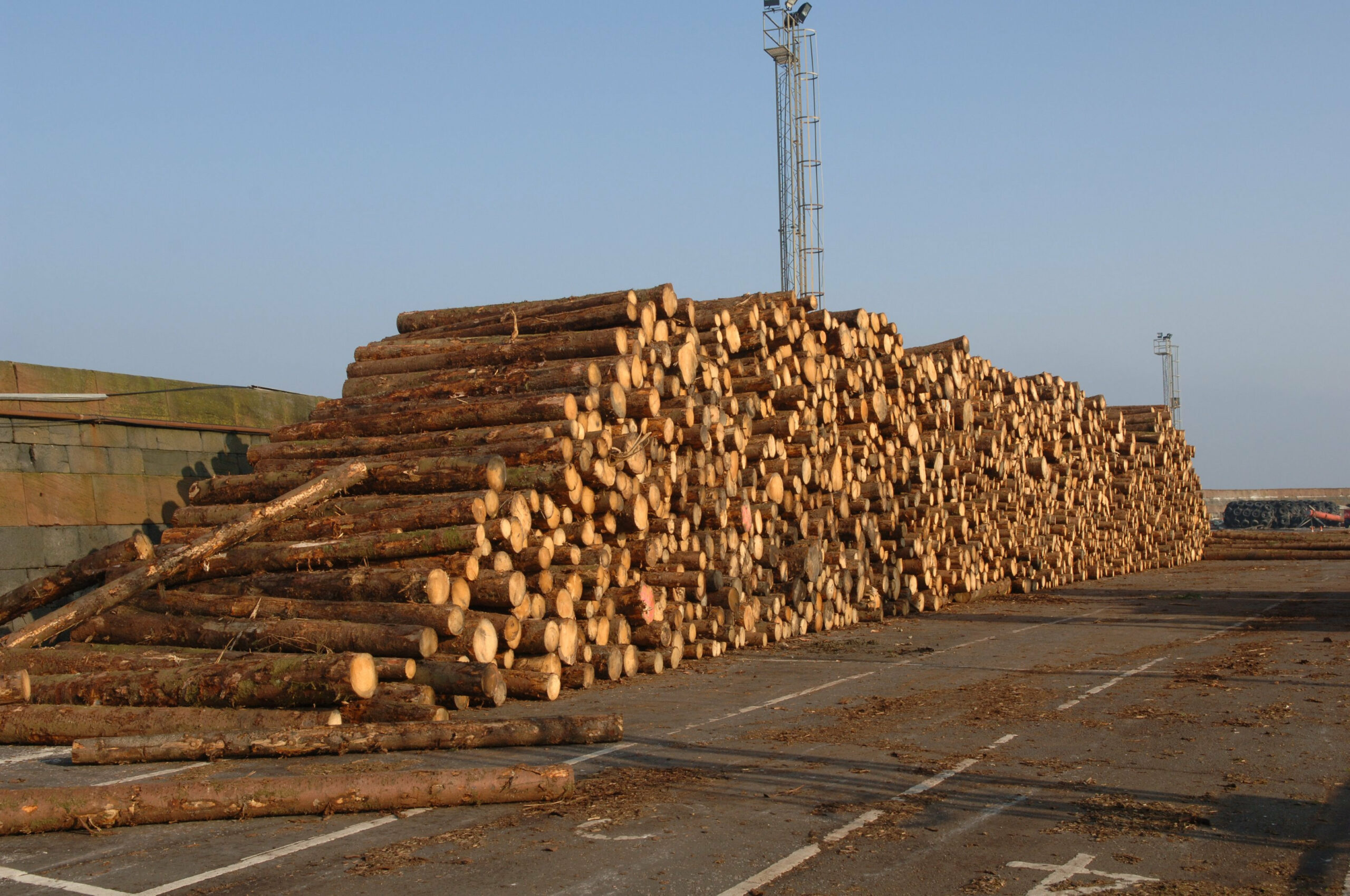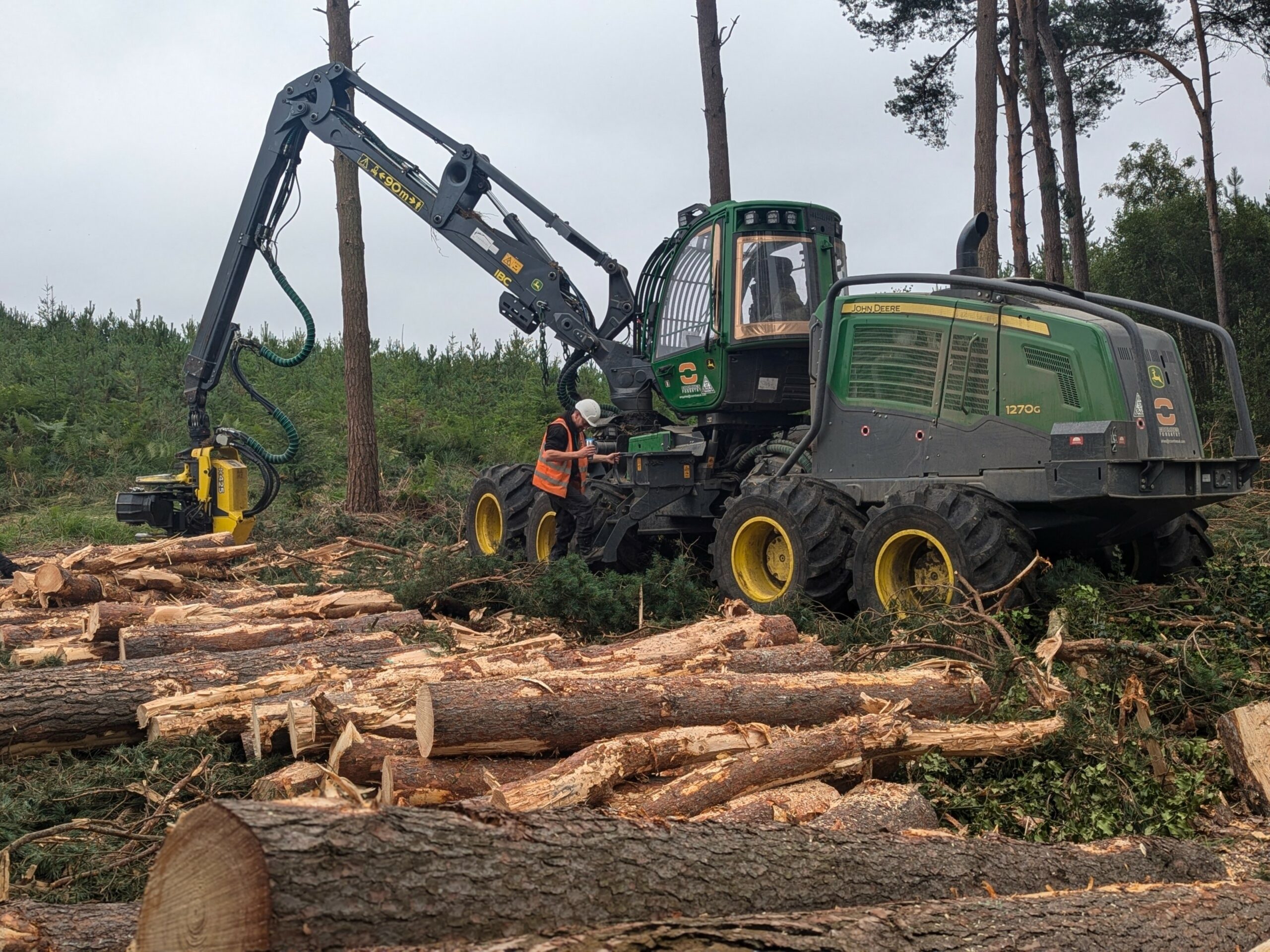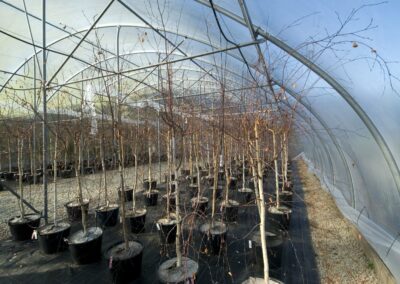Forest Sector Modelling – Risks and Resilience
Context
To help address risks to forest productivity, the UK Climate Change Committee’s Climate Change Risk Assessment (CCRA3) Evidence Report 2021 recommends “combined use of climate projections with socioeconomic scenarios to place UK domestic production in an international context“. Forest Research’s ‘Forest Mensuration, Growth, and Yield Science Group’ has already created advanced tools that model how forests grow and change over time and are capable of projecting timber supply and forecast carbon stock changes.
However, these models do not yet factor in how economics and adaptation policies influence forest management. This project aims to fill that gap using Forest Sector Models to show how forests, markets, and management choices affect each other.
Research aims and objectives
Aim:
Build the foundation for a new proof of concept Forest Sector Model to help the UK better manage and protect its forests.
Objectives:
- Understand how climate change, pests, and diseases could affect tree growth, forest health, timber markets, and the income and risks faced by forest landowners.
- Explore how changes in profits and risks might influence the types of trees landowners choose to plant, and how this could shape the future of UK forests and timber supply.
- Assess how different policies could help to reduce risks, support forest recovery, and increase resilience to future challenges.
- Collaborate with Forest Sector Model experts in France and Scandinavia, where these types of models are already used effectively.
- Use the proof of concept Forest Sector Model to combine biological and economic information to predict how biotic and abiotic risks could affect the health and productivity of UK forests.
- Explore different policy options to reduce these risks and help forests adapt over time.
Expected outcomes
- In-depth understanding of French and Scandinavian Forest Sector Model’s and how a similar approach may be applied to build a UK Forest Sector Model.
- Create a proof-of-concept UK Forest Sector Model that shows how forests grow and change, how markets are affected, and how management decisions play a role.
- Share the technical findings of the project through at least one published journal article.
- Create a simple summary of the findings, outlining how to increase forest resilience to climate change, relevant for landowners and practitioners, which will be made available on the Forest Research Climate Change Hub and the Centre for Forest Protection Knowledge Hub.

Modula Structure of the French Forest Sector Model (similar approach likely to be followed in developing a prototype UK Forest Sector Model) © Laboratoire d’Economie Forestière
Title image: Crown Copyright. Forestry Commission – John McFarlane
Body image: Crown Copyright. Forest Research – John Brushett
Glossary & Key Terms
Abiotic
Physical and environmental factors.
Biotic
Living organisms such as bacteria, viruses, fungi and insects.
Forest Sector Model (FSM)
A tool used in forestry economics and policy analysis to represent the complex interactions within the forestry sector, combing biophysical and economic elements. These partial-equilibrium models are used to understand and forecast how changes in one part of the sector (e.g., timber supply) might affect other parts (e.g., timber prices or forest management practices). They are crucial for informing policy decisions related to forest management, timber markets, and the broader bioeconomy.
Share this project on social media
Related Projects
Our Partners
Social media
Explore
Newsletter
Contact
© 2022 Centre for Forest Protection. All rights reserved.



